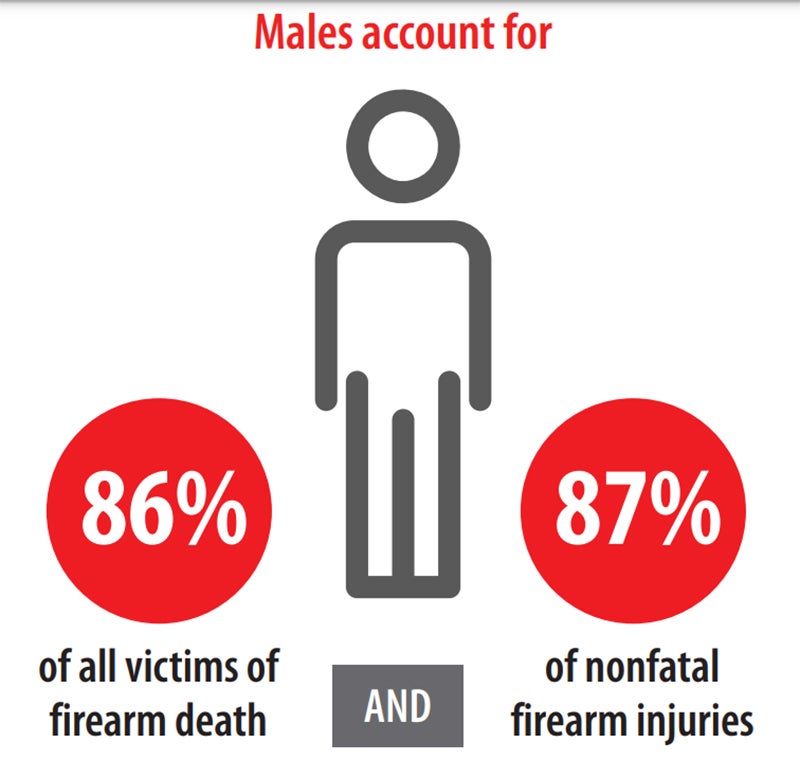Firearm Violence Prevention

- Firearm violence is injuries caused by guns, such as handguns, rifles and shotguns. This includes gunshots or any wound caused by a gun.
- Guns that cause injuries are commonly located in the house. It is important to always keep a firearm stored in a hidden location, out of site and always locked away with the ammunition out of the gun and kept in a different place.
- Children should never, ever, have access to a gun. It is important to keep guns away from children and locked out of their view.
How common is gun violence?
According to the CDC, about 40,000 people were killed by firearm violence in the US in 2019.
That is — more than 100 people die every day because of guns. Nearly 9 out of 10 people who die from gun violence are men and boys. Six out of every 10 deaths were firearm suicides and more than 3 out of every 10 were firearm homicides.
What are the consequences of firearm violence?
People who survive a firearm-related injury may experience longterm consequences — such as problems with memory, thinking, emotions and physical disability from injury and mental health problems like anxiety, depression and post-traumatic stress.
Gun violence can also affect the safety and sense of security for entire communities.
DID YOU KNOW?
Children as young as 3 years old may be strong enough to pull the trigger of a handgun. Three out of 4 children living in a house with a gun know where the gun is, even when their parents think they don’t know.
Keep guns unloaded, locked away and safely out of reach.
How do we protect our children from gun violence?
- Keep guns out of the reach and out of sight of children by storing them securely. Leaving guns unsecured — on a nightstand, table or other place where a child can gain access — can lead to injuries and fatalities.
- Store guns unloaded and secured with effective, child-resistant gun locks in a locked container out of the reach and sight of children.
- When a gun is not being stored, keep it in your immediate possession and control at all times. Otherwise, store the gun unloaded, locked and separate from ammunition.
- Talk to the grandparents and parents of your children’s friends about guns in the home and how to safely store and secure them.
- If you decide that you no longer need a gun in your home, dispose of it in a safe way. Consult with local law enforcement on the best way to do so.
Some resources for you to explore:
- National Center for Victims of Crime
- VictimConnect Resource Center | 1- 855-4VICTIM (2846)
- CDC Violence Prevention
- Coalition to Support Grieving Students
- Safe Kids Worldwide
Images adapted from the Centers for Disease Control and Prevention (CDC) and Safe Kids Worldwide